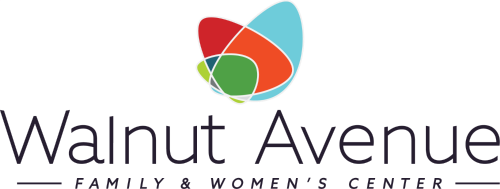Progress Report: Our Commitments to Action Regarding BLM
/On January 22nd, Walnut Avenue published a statement regarding why it supports Black Lives Matter as well as seven commitments to action. Six months later, after the anniversary of George Floyd’s murder and as Black adults and children continue to experience violence, this is a preliminary report of the progress that our organization has made on those commitments so far.
1. Being consistent and regular in reviewing policies and procedures for their effectiveness in lowering barriers for Black staff, volunteers, and program participants.
Walnut Avenue has established an internal Equity Committee in which all staff persons may voluntarily participate, allowing individuals to determine whether or not they wish to engage in discussions around specific topics and thus help avoid tokenizing staff with marginalized identities. This committee, headed by one of its administrators, is responsible for addressing internal policies related to identity-based barriers.
On average, attendance has been split fairly evenly between white staff and staff of color, about two-thirds heteronormative to one-third who are openly queer, and two or three staff persons with disability. Ages consistently range from mid-twenties to older folks. Formal education level ranges from high school graduate to doctorate. Multiple faith orientations are also typically represented.
Administrators have been seeking out POC-led trainings that deconstruct the inherent racism of certain systems, including the nonprofit system, and describe options for alternative practices. Changes based on that education so far have included:
Allowing PTO for staff who are personally impacted by race-based violence, including when it appears in national news
Implementing more flexibility in which holidays, both faith and secular, are and are not allowed PTO by default so that staff are better able to make personal choices according to their own religion/irreligion, culture, etc
Currently reviewing the compensation policy for bilingual staff members to ensure it remains equitable for the tasks that bilingual staff are often asked to do in their positions
Currently reviewing the internal grievance process, with all staff persons given the opportunity to provide critical feedback on confidentiality concerns, language, and procedure
Currently reviewing the 2017 Cultural Responsiveness Plan for practical application, delegating tasks, and creating a plan for checking in on progress being made by individual programs
2. Being clear in what the confidential feedback process is so that Black staff, volunteers, and participants can be honest in their experience with Walnut Avenue without fear of retaliation, for the purpose of Walnut Avenue remaining adaptable to people’s needs over time
Feedback for Walnut Avenue from its staff, volunteers, and participants is typically solicited through the use of surveys (both printed and digital) and from verbal check-ins. The language of written surveys is currently being evaluated for implicit bias and different options for how to submit feedback are being explored in order to increase accessibility.
At the moment, the best ways to offer feedback is by contacting us by phone or info@wafwc.org.
3. Ensuring that all agency trainings, including its certified domestic violence advocacy training, involve anti-racist education relevant to the training’s purpose.
Walnut Avenue’s domestic violence advocacy certification training has gone through an overhaul that more effectively explores how social/political power dynamics shape domestic violence; how the legacy of anti-Blackness, anti-Indigeneity, and other forms of oppression are still present and encouraging domestic violence; systemic barriers for survivors; and practical alternatives to involving law enforcement.
As relevant to the topic of the workshop or presentation, all presentations and workshops for teens and adults across the board must now use gender-inclusive language and include discussion of barriers and resources specific to different marginalized demographics with a special emphasis on Black, Indigenous, and trans experiences.
4. Better incorporating anti-racist resources into its social media campaigns.
Our social media accounts follow the accounts of Black activists and Black-led organizations in order to signal boost the words, publishings, and resources which are created or recommended by people who directly experience anti-Blackness (rather than making assumptions about what is or isn’t appropriate, needed, or wanted).
The community engagement coordinator, who oversees our social media, also makes sure to accompany any statement of support to a marginalized demographic with practical information, such as a concrete action that Walnut Avenue is committed to, a resource created by or for the demographic in question, or links for an audience’s further self-education.
5. Collaborating with individuals, groups, and other organizations on projects which are within our scope of service and resources which center the specific needs of Black community members.
In partnership with the Conflict Resolution Center of Santa Cruz County, Walnut Avenue is currently developing a new, voluntary transformative justice program that does not involve the legal system for domestic violence survivors. This program is being compiled by community advocates and mediators based on principles and resources coming from primarily Black, Native, and prison abolitionist groups such as INCITE!. More information will be provided in the near future.
Walnut Avenue has been in discussion with various local service providers on partnering for events and workshop series, including those meant specifically for marginalized demographics. Not all of those partnerships have come to fruition, but we continue to explore options currently and remain open for future collaborations. If you’re interested, please email us at info@wafwc.org!
6. Exploring ways in which we can expand on education, resources, and services for Black residents in Santa Cruz County.
One of the reasons that nonprofits collect anonymous demographic data for the people they serve is to help identify, statistically speaking, if the people being served reflect the same demographics as the local general population.
Approximately 1.1-1.4% of Santa Cruz County’s residents identify themselves as Black, and about 4% of Walnut Avenue’s participants are Black. This means that, in terms of population percentages, Black folks are experiencing higher rates of domestic violence than other racial/ethnic demographics in our county. This aligns with national data that say Black people experience the highest rates of interpersonal violence second only to Native people. Our anecdotal evidence suggests that a majority of Santa Cruz’s Black survivors are involved in interracial relationships, which reinforces what we know about how racism intersects with domestic violence.
Our prevention education advocates are looking for current information from Black advocates and Black-led social service organizations, such as Ujima, to update our educational materials and explore additional methods of making our services both more culturally responsive and more accessible.
In addition to making our programs more accessible, we also want to lower barriers within our volunteer programs and hiring practices. If you would like to provide feedback on that, you may do so through this 5-question survey here.
7. Demonstrating no tolerance for racism and discrimination in all of our practices, collaborations, and communication, and having clear recourse for those occasions in which it does inevitably happen.
The process of how grievances are addressed is currently under review by the Equity Committee for clarity, simplicity, and confidentiality.
Collaborating on Culturally Specific Domestic Violence Resources
Domestic violence occurs in all demographics. Unfortunately, with a population of over 64,000 (2019 Census) in Santa Cruz County and only six full-time advocates, we are physically limited in how many survivors we can reach. That said, survivors are more likely to seek help from a loved one first: so the question is, how can we share knowledge and skillsbuilding to create a bigger network of safer allies and resources in our local community?
Our trainings and workshops are free. A few options for collaboration include but definitely aren’t limited to:
Cultural groups working with our advocates to develop literature and/or education specifically for their community
Training service providers, both secular and spiritual, on how to respond in a trauma-informed way when a survivor discloses their experience
Community members bringing our advocates into their social space, online or in-person, to provide free education
You can find more information about our no-cost workshops here or you can contact the community engagement coordinator at mcoffey@wafwc.org.
To Provide Feedback
By phone: (831) 426-3062
Email: info@wafwc.org
Survey: feedback for identifying barriers in our volunteer programs and advocacy training

